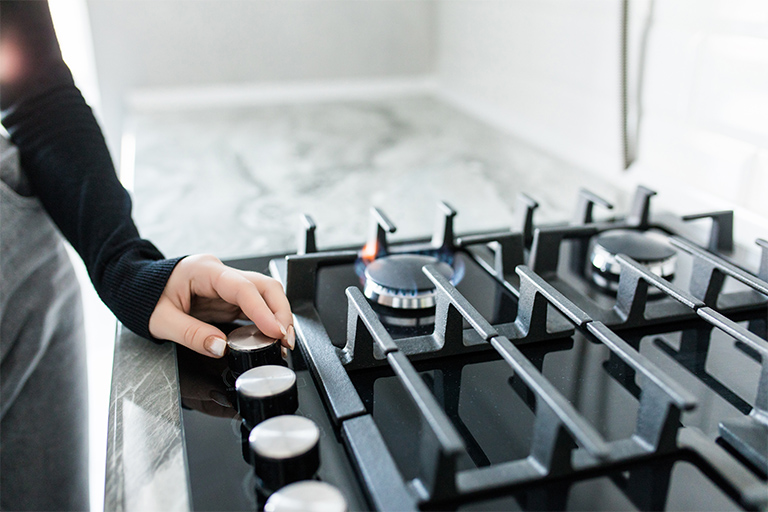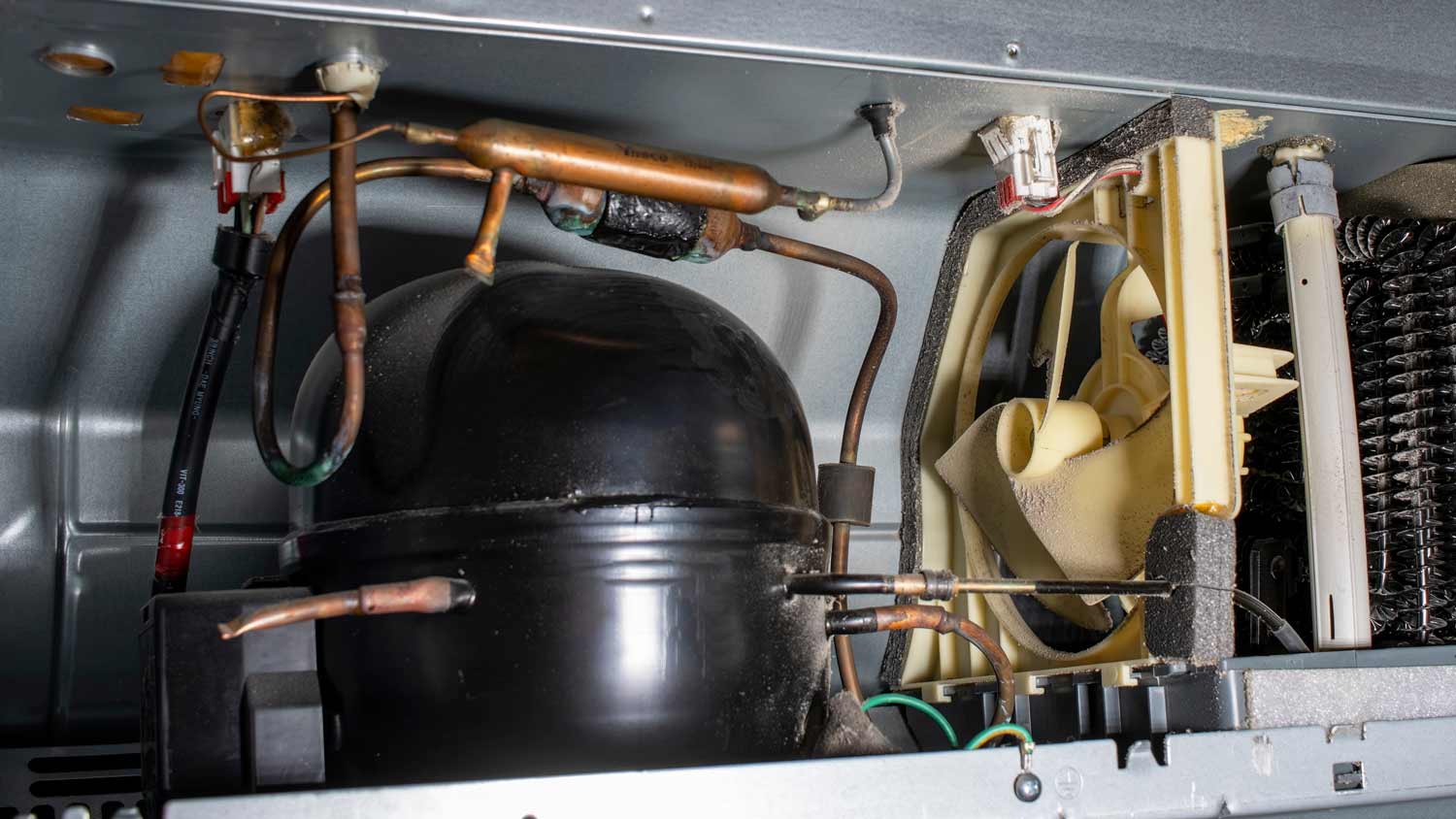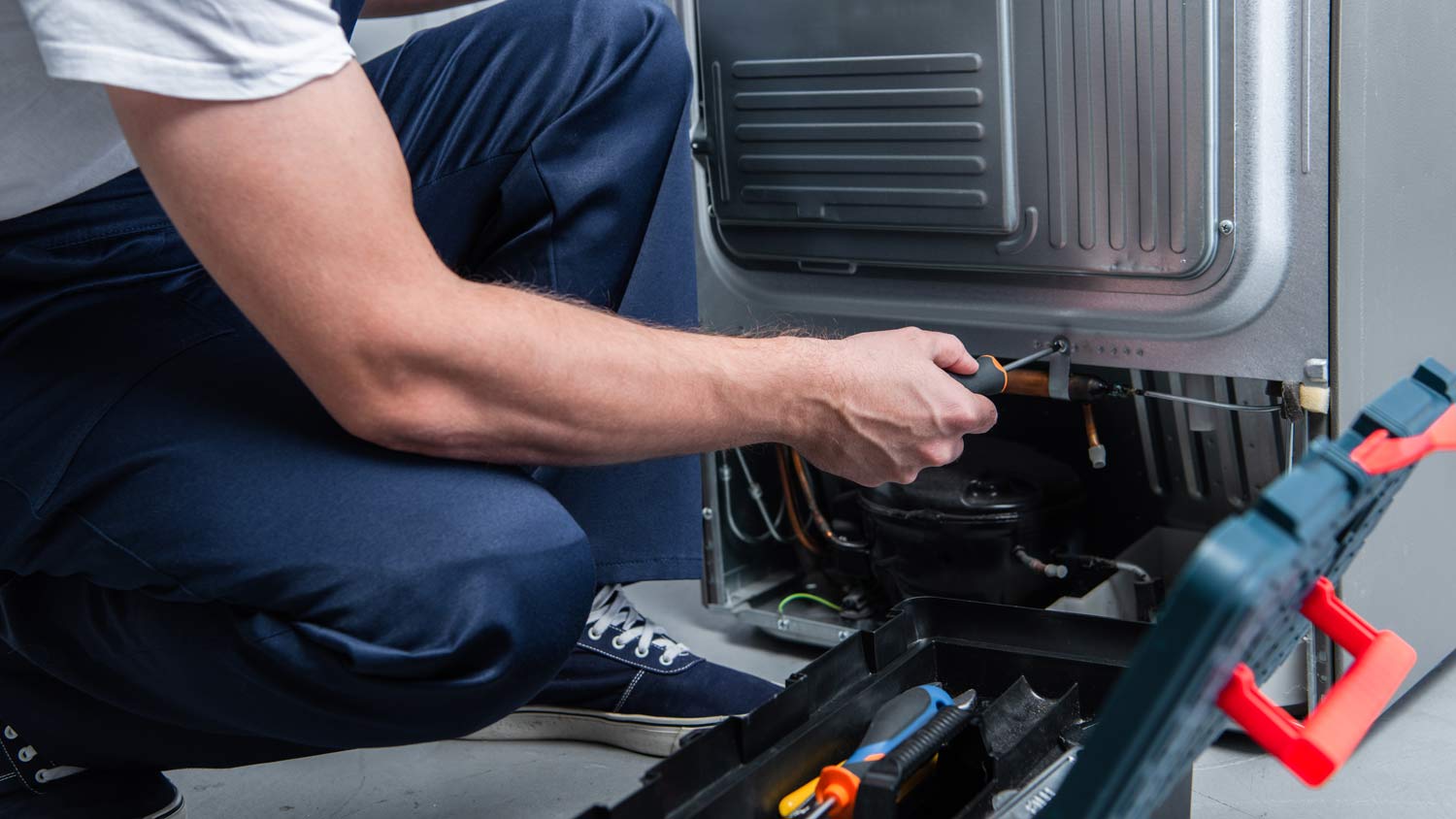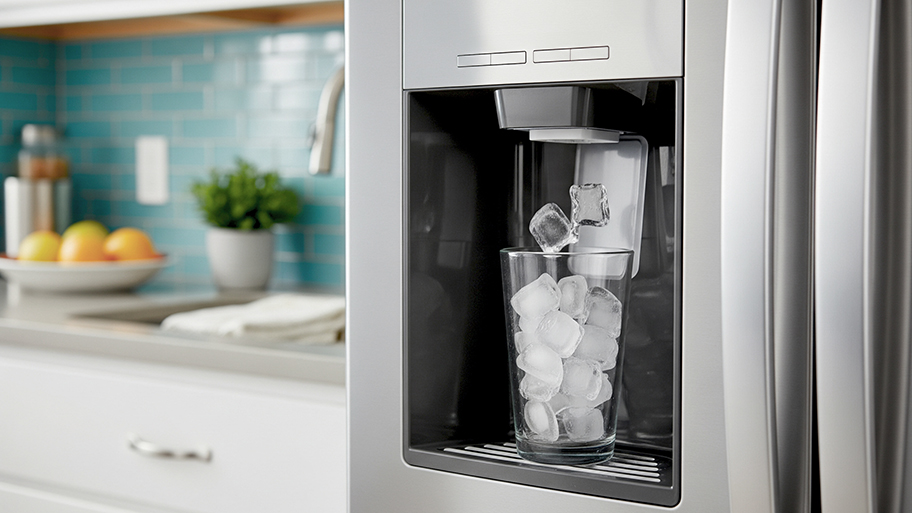
Discover the cost to install a gas cooktop. Learn about average prices, key cost factors, and tips to save on your gas cooktop installation project.
Freon leaks are very uncool for your appliance
.jpg)
.jpg)
Freon is a brand of refrigerant used in cooling appliances.
Copper corrosion is one of many signs of a freon leak.
Refrigerant leaks are best handled by a professional.
It’s always a smart move to inspect major home appliances and systems regularly to confirm that all components are working as they should. However, even the most diligent homeowner wouldn’t necessarily think to inspect the refrigerant coils in a freezer too often—or at all. But if your freezer isn’t doing its job to preserve your food, it could be that freon is eating the copper piping in your freezer. Here’s what to do about it.
Freon is the brand name of a chlorofluorocarbon (CFC) often used as a refrigerant in refrigerators, freezers, AC units, and other cooling systems manufactured prior to 2020. Newer appliances also contain refrigerant, but Freono’s synthetic chemical formula of carbon, chlorine, and fluorine is blamed for the depletion of the ozone layer, which shields the earth from the sun’s UV rays. As such, it has been phased out of new production.
Copper is a good choice for piping in refrigerators and freezers because of its durability and excellent thermal conductivity. It is strong enough to withstand the heat of liquid refrigerant as it turns to gas. Although copper is corrosion-resistant, it’s not completely immune to damage. And when copper pipes start to corrode in a freezer, it can lead to freon leaks, either in gas or liquid form.

While any refrigerant can leak from damaged pipes of any material, you’ll especially want to take care of any old appliances that might still contain freon. If you are experiencing any of the following issues, you might have a freon or refrigerant leak:
After you set your freezer to the correct temperature, there needs to be enough refrigerant to achieve that frigid interior. If the freon isn’t staying put inside the copper tubing, then it’s not working to preserve your food.
There shouldn’t be a hint of any odors if your freezer is working properly. But if you smell something musty in the air with a chemical tinge—think nail polish remover—then you might have a freon leak.
Unless you’ve just spilled some olive oil in the kitchen, don’t rush to grab a cloth to wipe up any oily residue near the bottom of your fridge—it could be leaked refrigerant.
Appliances tend to get noisier the older they get. But if your freezer or refrigerator’s motor is constantly whirring, it means that the appliance is working too hard to keep your food cold. While this could be indicative of other mechanical failures within the appliance, don’t rule out a freon leak.
Granted, this could be blamed on any other appliance in your home that’s past its prime, especially an AC unit that also contains refrigerant. But if you haven’t altered your usage of appliances yet your energy bill is climbing, a freon leak in your freezer could be the culprit.

Freon or other refrigerants won’t cause trouble in small doses, but larger leaks will emit harmful chemicals in the air and pose a health risk. Only a trained technician should handle it from here, so call a fridge repair pro near you as soon as possible.
When the pro arrives at your home to inspect your freezer, here are some of the things they might do to fix the appliance, at least for the short term:
Seal cracks to prevent further leaking
Replace corroded piping, either with copper or another material like stainless steel
Add more refrigerant
Some appliance issues require small, inexpensive fixes, while others require big, expensive ones. Talk to the contractor about your options for your appliance. It might be more cost-effective to purchase a new appliance rather than fix the current one, especially if it’s an older model and parts are hard to come by.
From average costs to expert advice, get all the answers you need to get your job done.

Discover the cost to install a gas cooktop. Learn about average prices, key cost factors, and tips to save on your gas cooktop installation project.

Discover the average washing machine repair cost, key price factors, and expert tips to help you budget and save on repairs for your home.

Discover the average ice maker repair cost, key price factors, and tips to save. Learn how to budget for your ice maker repair and when to repair or replace.

If you notice your dryer vent leaking water, you could be prone to mold growth and water damage. Use this DIY guide to remedy the issue right away.

Without proper ventilation, a washing machine can clog, leak, and cause a dangerous mess in your home. Learn how to vent a washing machine drain with this guide.

Unsure who to hire to install your range hood? Learn about the different professionals to consider and find the right one for your project.